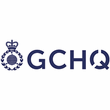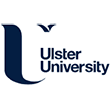Technical author
For a successful career as a technical author, you'll need to be an excellent communicator, with an eye for detail and the ability to convey factual information clearly and concisely
Technical authors write factual information about products and services, and how they work. You'll need to understand the product or application yourself, and then design and write documentation to explain it to users.
You'll explain how things are used in a way that is easy to understand, simplifying language and explaining technical terms. The information may be presented in the form of user guides for software applications, reference and instruction manuals for appliances, training guides, instructional videos or online help incorporated into software and operating guides.
You may also provide the information in various other forms including software demos and interactive tutorials, wikis, blogs and podcasts, using video, illustrations and graphics.
Technical authors work for a range of industries, including:
- aerospace
- automotive
- banking and finance
- construction
- defence
- education
- energy
- engineering
- government
- IT
- manufacturing
- marketing
- medicine and pharmaceuticals
- mobile telecommunications
- research and development
- retail
- science
- technical publishing.
You might want to work in an industry or as a freelancer and you might choose to specialise in one particular field.
Jobs may also be advertised under titles such as technical writer or communicator, information designer or developer, content strategist, documentation manager or publication manager.
Responsibilities
As a technical author, you'll assess the nature of the product or service and the target audience, and will need to:
- attend planning and briefing meetings
- collaborate with developers and managers to understand the technical aspects of the product and clarify any technical issues
- interview experts and sales and marketing specialists
- work with translators, illustrators, designers, printers and service providers.
A large part of your job will be spent researching and gathering the information required. You'll need to:
- use the product or service in question to understand the technology and applications for which documentation is being prepared
- gather and analyse the information needs of the user.
Then comes the challenge of presenting the information. For this, you'll:
- organise information according to your user's needs
- write and edit text
- commission, coordinate or prepare illustrations
- use a variety of software applications to present the information
- index and catalogue material.
Related administration may involve:
- working on and managing multiple projects simultaneously
- creating work schedules
- marketing - publicising services and skills to potential clients
- keeping up to date with developments and trends in the industry and attending training courses.
Experienced technical authors can be involved in work at a strategic level and with the planning needed to manage content throughout its entire lifecycle.
Salary
- Starting salaries are around £22,000 to £25,000.
- With experience, and as you progress, you can earn in the region of £25,000 to £60,000.
- Publications managers and those with specialist skills could earn in excess of this. Once you have significant experience you could earn a salary of over £60,000.
- As a contractor or freelancer, you could charge rates up to £50 per hour depending on your level of experience. At the very highest level, you may be able to charge more.
Salaries vary depending on the sector, location, size of the organisation you work for and your previous experience.
Additional benefits can include a pension, private healthcare, share options scheme, life insurance, CPD and gym membership. You may also receive a company, team or personal performance bonus.
Salary figures are intended as a guide only.
Working hours
If you're based in an office or working from home, you will usually work between 9am and 5pm. You might need to work evenings or weekends to meet deadlines.
Part-time and flexible working is available, and if you're a freelancer, you might work from home but visit your clients in their premises.
What to expect
- Work is primarily office based, although you'll visit clients and spend time in the field to carry out research.
- You may work in teams, although smaller organisations may employ only one technical author. You may also work in a team with other professionals such as graphic designers, user experience designers, software developers and testers.
- Self-employment or freelance work is common after gaining experience, and can pay more. Contracts vary from a few days to several months and technical authors typically work on several projects at once.
- Jobs are available across the UK but may be more easily found in large cities.
- There might be limited opportunities for promotion, except to management roles or freelance consultancy.
- Travel within a working day and overnight absence from home are occasionally required. There may be some opportunities for overseas work.
Qualifications
There is no set entry route for this career. Employers look for a mix of communication and subject-specific skills. Degrees in the following subjects are particularly relevant and helpful:
- sciences
- engineering
- technology
- journalism
- languages.
Many entrants have a degree, HND or HNC in sciences, computing, engineering, communication, or journalism. Some science and technology degree courses include modules in technical communication.
Courses in technical communication and publishing software and technologies are useful for developing practical skills. Training specifically in technical or commercial authorship is also available. For example, the Institute of Scientific and Technical Communicators (ISTC) accredits a range of training courses, including an introductory course for those interested in a career as a technical author.
Experience of a range of software packages is advantageous and so any degree that provides this will also be useful. It's particularly helpful if you have experience of working with publications software such as Word, Excel, Adobe Acrobat and Illustrator. You will also work on specific software packages and authoring tools, which will vary depending on the nature of the work you're doing. Check job adverts to get a feel for the technical skills required.
Although you don't need a pre-entry postgraduate qualification to work as a technical author, it can be useful, especially if your first degree isn't in a related subject. Masters in technical communication are available, as well as qualifications in technical writing. Search for postgraduate courses in technical communication.
Skills
You will need to have:
- excellent knowledge of the English language with a good command of grammar and vocabulary
- the ability to express instructions clearly and briefly in simple language
- a concern for verbal consistency and an appreciation of tone and style
- good documentation skills and the ability to produce visually attractive instructions
- interpersonal, communication and research skills to effectively gather information
- an ability to grasp and structure large amounts of information and anticipate the reader's knowledge gaps
- an enquiring mind with reasoning skills and attention to detail
- administration skills
- editorial judgement
- accuracy and a methodical approach to work
- the ability to mix creativity with objectivity
- the ability to work to tight schedules
- excellent planning and organisational skills
- analytical and questioning skills to get information from experts
- the ability to work successfully as part of a multidisciplinary team
- self-discipline when you have to work alone
- a good understanding of computers and other communication tools.
Work experience
This is a competitive sector, so it's useful to have practical experience that relates to the job. This could be experience of writing guides or user manuals for companies as part of internships, placements or volunteering opportunities.
You could also try to get involved in student publications or even start your own blog, which can help you develop your writing skills and create a portfolio. Your portfolio could also include other writing assignments that show your ability to communicate with the reader.
Any experience that shows skills in related areas such as science and technology is also useful.
The availability of opportunities depends upon the sector and location. It's helpful to join professional associations such as ISTC, which has a student membership category, allowing you to access advice and guidance.
Find out more about the different kinds of work experience and internships that are available.
Advertisement
Employers
As increasingly complex applications, systems and products are developed, more skilled people are needed to write user guides, instruction manuals and training materials in a variety of sectors. For example, you could work in:
- aerospace
- banking and finance
- defence
- IT and telecommunications
- medicine
- pharmaceuticals
- retail.
Some companies employ technical authors in-house. These are often in the larger computing, telecommunications, engineering and defence industries. Other employers include:
- technical publishing companies
- finance institutions
- research organisations
- the Civil Service.
There are also specialist technical communication companies employing technical authors to work for a variety of clients.
Look for job vacancies at:
- Association of British Science Writers (ABSW) - you'll need to become a member to view vacancies
- CWJobs
- GOV.UK Find a Job
- New Scientist Jobs
Job vacancies are advertised in the membership forums of the ISTC.
LinkedIn also advertises vacancies for technical authors.
Vacancies are also handled by specialist recruitment agencies, including:
Professional development
Training is mostly carried out on the job but you can also take external training courses to supplement your knowledge and develop your skills. The ISTC, for example, accredits a range of technical authorship courses. For a list of courses and training providers, see ISTC: Learning and Skills.
The ISTC also runs a mentoring scheme for its entry-level members, which is useful when first starting your career. On the scheme, you're paired up with a more senior member who will provide advice and guidance.
You'll need to undertake continuing professional development (CPD) throughout your career in order to keep up to date with developments in the profession and with changes in the software packages used to create manuals and guides. Membership of the ISTC is useful as they run a range of events and conferences, produce trade publications and provide access to advice from experts. They also provide advice on the type of activities that count towards CPD.
As you develop your skills and experience, you may be eligible to become a Member of the ISTC and, eventually, a Fellow. For details on the different levels available as you develop professionally, see ISTC: Grades of Membership.
You can also do further study in technical communication at Masters level. Many employers will be happy to support you and may give you time off for classes or even help with funding.
Career prospects
The job outlook for this role looks positive, with more and more technical authors being employed every year.
You'll typically start out your career in a junior technical author role and will progress to senior technical author as you gain skills and experience. You may progress from there to project leader or editor. With more experience, you can go on to managing teams or become more involved in related areas such as usability, interface design, customer experience, training and quality assurance.
You may have to move between organisations to achieve career progression, especially if you're working for a small company where you’re the only technical author. You can work across different sectors, for example finance and pharmaceutical, or use your specialist knowledge for different publications, such as writing manuals or magazines. It may even be possible to use your science and communication skills to provide instructions for specialist scientific equipment.
With experience, and once you've built up a network of contacts, there are opportunities to become a freelancer or consultant. This work tends to be project based and may lead to a higher salary or freedom to choose assignments.
As you progress you may want to move into a different area of work and could consider roles such as business analyst, usability specialist, information architect, medical writer, researcher, science writer or journalist.
Alternative careers
Related jobs and courses





